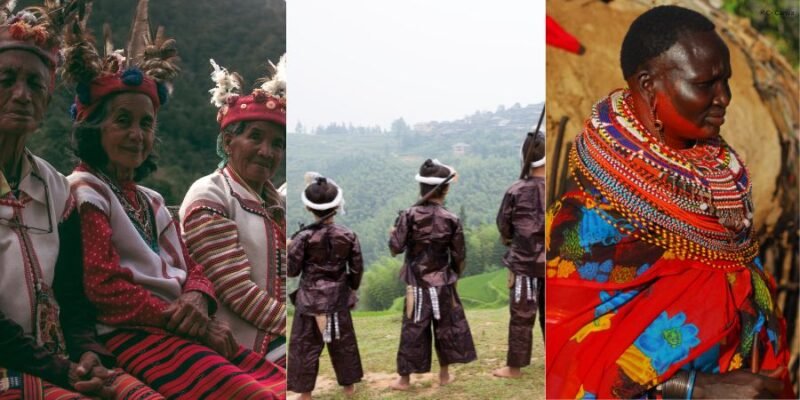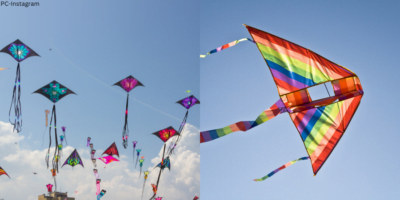Amidst many faces of India, there is a face that is least seen and studied: The tribes of India. The face of shyness and hesitation. The face has a distinct culture. As it is considered a basic trait of the scheduled tribe, “reticent” and “Distinct ethnicity”.
India is a country rich in culture and customs. The tribes of India make its culture even more diverse. Leaving the observer awestruck in amusement. Such diverse rituals and practices are so unusual to see. even after preservation through the constitution and regular law, there are several tribes of India that are finding it difficult to sustain the transit period of modernization.
There are several such under-veil tribes of India that still exist and sustain their living without any ailment from the globalisation or outer world. So today’s article is about such forgotten tribes of India, the shy faces of India. Here’s a list of unexplored Tribes in India:
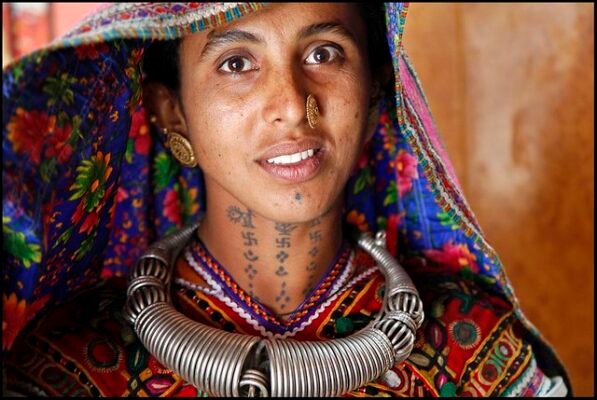
Table of Content
| S.No | Content |
| 1. | Konyak Tribes- The warrior Tribe of India |
| 2. | Bhotiya Tribes- The Bhole Bhagat |
| 3. | The Jarawa Tribe- From Land Protectors To The One Who Needs Protection |
| 4. | Khasi Tribes- The Only Matrilineal Civilization Of India |
| 5. | Hunza Tribe- The Tribe That Never Gets Old |
1. Konyak Tribes- The warrior tribe Of India
When you visit the Naga villages, a burst of colour emerges; brightly coloured shawls, jewellery, headwear, purses, and jackets with tribal themes are a sight to behold.
The Konyaks, also known as the warrior tribe, are a remote ethnic group whose distinctive cultural practices include headhunting and intricate facial tattoos. They live in the forest interiors of Nagaland. The Konyak Tribes, who are tattooed headhunters of India, are hospitable and kind. But their name as a headhunting tribe can be scary, they think that human skulls emit a mystical force that will bring wealth and benefit local agriculture.
The greatest celebration of the Konyak Tribes is called Aoleang, which is observed during the first week of April (1-6) to welcome spring and to ask the Almighty’s (Kahwang) blessing on the land before sowing seeds.
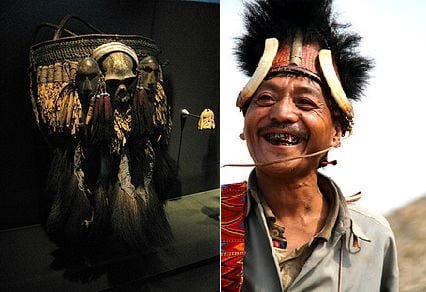
2. Bhotiya Tribes- The Bhole Bhagat
The Bhotiya Tribes or may we refer them as “Bhagat of Bhole”.Bhotiyas have a unique set of ceremonies derived from Hindu mythology and religious practices. Strong Bhotiya belief links Lord Shiva with Bhang, who employs it to protect the world from his fury. This clan offers Bhang during Holi and Maha Shivaratri festivals, imitating Shiva.
The ceremonial usage of marijuana, not for recreation but for religious purposes, is the most intriguing fact of the Bhotiya Tribal culture.
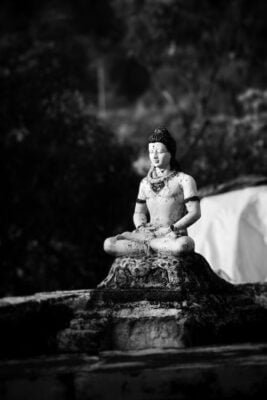
3. The Jarawa Tribe- From land protectors to the one who needs protection
The Jarawa Tribe have a history of being traditional hunters, gatherers, and fishers. They have also earned a reputation as fierce warriors and land protectors but when we observe today’s scenario it seems quite opposite this native tribe of Andaman is finding it difficult to even survive and maintain its uniqueness,
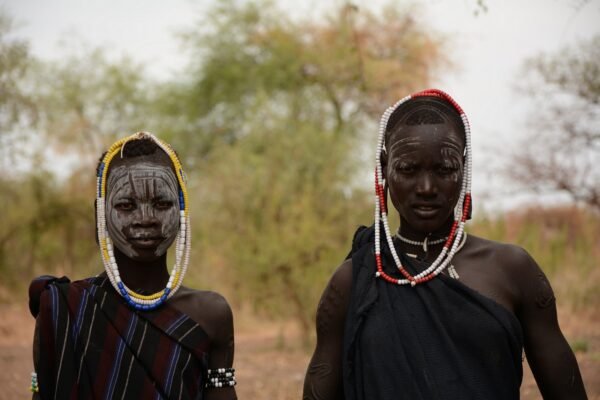
The Jarawa is the subject of extensive research because of the changes brought about by modernization. They had a lot of privacy because of the Andaman islands, but as the island’s tourism grew, they came into contact with outsiders. The Jarawa tribe is now consciously abandoning their rituals and pleading with the tourists for food, booze, and tobacco after initial antagonism developed into infiltration. Despite the fact that very little is known about the tribe, these modifications have made it crucial for sociologists to examine the last few traces of Jarawa culture.
4. Khasi Tribes- The only matrilineal civilization of India.
They were among the first people to occupy the subcontinent, residing in the Jaintia and Khasi Hills of Meghalaya. Being the sole matrilineal civilization in India sets them apart as one of “The Seven Huts” of the Khasi.
The Khasi people are a vibrant tribe who lives a life enriched by music, art, and dance. Khasi is a friendly and generous people that welcome visitors from all over the world into their homes so they can experience their beautiful customs and holistic culture. They wear long caps, silver jewellery, and prismatic dresses.
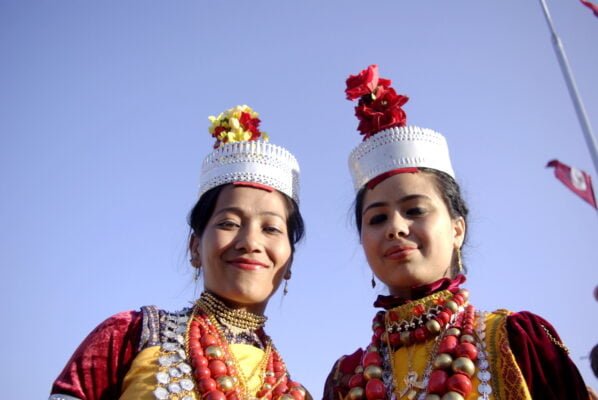
5. Hunza Tribe- The tribe that never gets old
The Hunza has captured the interest of people all over the world with their young seniors and their natural ageing process, which results in adults who are far more graceful-looking.
The secret to their extraordinary longevity and grace is their ingestion of entire grains, minerals, and unprocessed natural food, with very little meat in their diets. The Hunza valley’s alkaline water is also attributed which keeps the locals young. The Hunza show the world that natural consumption is important for preserving health and long life, even if they eat food that is available to the rest of us.
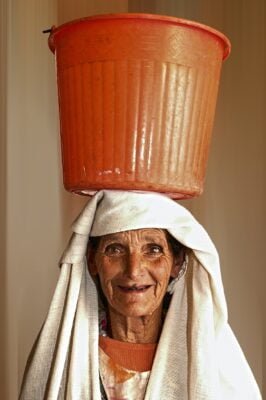
Q. Where do the top 5 Indigenous Tribes Of India Live?
| Name | Location |
| Konyak Tribes- The warrior Tribe of India | Tirap, Longding, and Changlang districts of Arunachal Pradesh; Sibsagar District of Assam; and also in Myanmar |
| Bhotiya Tribes- The Bhole Bhagat | Sikkim, West Bengal and Uttarakhand |
| The Jarawa Tribe- From Land Protectors To The One Who Needs Protection | South Andaman and Middle Andaman Islands |
| Khasi Tribes- The Only Matrilineal Civilization Of India | The eastern part of Meghalaya, in the Khasi and Jaintia Hills |
| Hunza Tribe- The Tribe That Never Gets Old | Jammu and Kashmir |
Feature image source- pexel
If you loved reading this story, you can also read 7 Hidden Gems Of Indian Culture & Art, More Hip Than The Pop Art Of This Century But Fading In The Plight Of Time
If you know about more inspirational stories about any person, company, new idea, or social initiative, and want us to write it on mad4india.com, share such information with us on Instagram, Facebook or LinkedIn.
